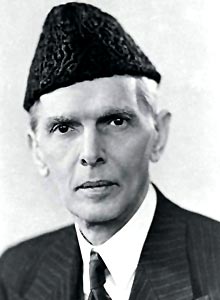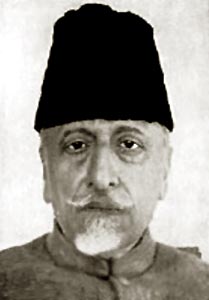 The Simla Conference marked the relevance of India in British politics. As the war was changing its centre, the Parliament of England paid its attention towards India which had already earned bitterness for England among all other European nations. Also the long stretched Second World War had largely exhausted the resources of both men and money of Britain which required new resources for continuing the war. This was necessary to threaten the Japanese who were the biggest threat to British Empire in the east. All these brought England to some kind of mediation with India that would help them to fight the Japanese at the eastern front.
The Simla Conference marked the relevance of India in British politics. As the war was changing its centre, the Parliament of England paid its attention towards India which had already earned bitterness for England among all other European nations. Also the long stretched Second World War had largely exhausted the resources of both men and money of Britain which required new resources for continuing the war. This was necessary to threaten the Japanese who were the biggest threat to British Empire in the east. All these brought England to some kind of mediation with India that would help them to fight the Japanese at the eastern front.
The relevance of Simla Conference was more prominent by the mid of June 1945 when the war in Europe had almost come to an end. This diverted the attention of the west towards India, the most powerful colony which was politically aware and was claiming for independence for long. Lord Wavell, the new Viceroy who succeeded Lord Linlithgow, was of the opinion that though the war in Europe has come to an end ,it should continue in Asia for some more time which will require the Indian nationalist leaders as well as the Indian mass to serve as manpower for the war . This brought the necessity to establish some rapport with the popular party of India which will convince the masses as well. Even in England the general elections were a month ahead for which even Churchill allowed Wavell to start negotiations in India. As such on his return from England Wavell announced the release of all the Congress leaders and made another announcement for a conference to be held at Simla on 14th June 1945.
Proposals for Simla Conference
The conference which began in June 1945 and lasted till July 14th July, laid down certain political and constitutional proposals before the Indian National Congress. These included firstly, to ease the political situation by advancing India towards a self -government and set up a new Executive Council which would be entirely Indian except the Viceroy himself and his Commander -in -chief; secondly, castes like the Hindus and the Muslims will have equal representation in the council; thirdly, the executive council would work like a provincial national government under the Government of India Act, 1935; fourthly, the formation of an interim government which will later on frame a new constitution by the Indian themselves; fifthly, the settlement of communal issues which had been the most stumbling block for the advancement in Indian politics. The proposals also included the functions of new executive council which could be to prosecute the war, to carry on the government of India and to consider the means by which the new permanent constitution could be agreed upon. It further claimed that the portfolios of the members of external affairs which the viceroy was would be transferred to the Indians.

Reaction of the Indian leaders towards the proposal
The proposals advanced by the Simla Conference was objected by both congress and League on certain grounds .As for Congress, the party objected that the conference has reduced the status of the congress party as purely a Hindu party. On a contrary Congress claimed itself to be a secular party and demanded a representation of all the communities including all the minorities which will make it all comprehensive.
The Muslim League also raised a number of objections. They claimed that the list which will be submitted by the League shall be the final list and the viceroy`s demand for panel of names was unjustified. Secondly, the Muslims in the cabinet should be all from the League members.
Simla Conference faced a lot of agitation as the then Congress President Maulana Abul Kalam Azad emphasized the nationalist character of Congress Party and condemned the government in reducing Congress to merely a Hindu dominated party. As Azad himself was a Muslim he along with other Muslim could represent the secular character of the Party who against the League would support the Congress. Secondly, it reiterated the claim for Independence which escaped the basic agenda of the conference. Muhammad Ali Jinnah the leader of Muslim League on the other hand, asserted that he could not agree to any other constitution except the one for Pakistan; he also claimed for the equal status for the League to set up separate provincial government for the Muslims and absolute right for the nominated Muslim representatives in the Executive.
Fallout of Simla Conference
Simla Conference ended up in a failure. Though Congress was able to assess the value of time which made the proposal relevant for the Indians and as such decided to agree substantially to the proposals ; the League on the hand ,did not accept the proposal as it expected two of its vital demands top be fulfilled with the conference which included (i)that a separate Muslim state would be established in the Muslim majority areas after the war; and (ii) that the Muslims accepted as one of the majority party would be given equal number of representation in the Executive. Any compromise in the fulfilment of these demands will be to make a compromise on the demand for Pakistan.
Thus, the Simla Conference which began with a lot of hope for all the parties finally landed up into half hearted dreams for future which will benefit nobody. Rather it openly categorized the British government in creating differences on the basis of religion which was not accepted by both the sides. Also the conference was blamed for undermining the right of both League and Congress to have a self rule and independent nation without which the participation in the war by the Indians would be meaningless.